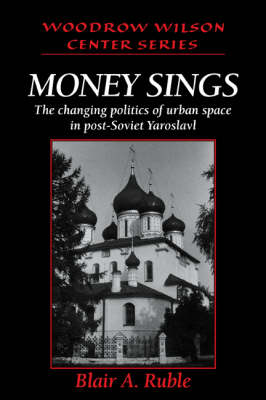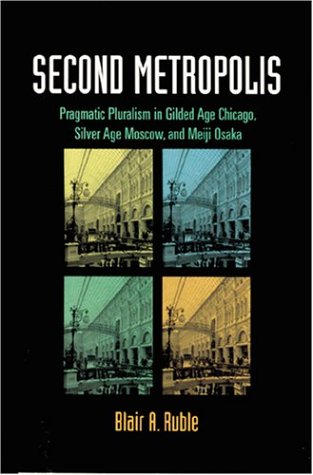Woodrow Wilson Center Press
2 total works
The politics surrounding the use of urban space expose the interaction of economic, physical, social and political factors that shape contemporary society. This exposure is especially revealing when focused on a single community during a period of dramatic transformation. Money Sings explores the sweeping reorganization of Russian life during the initial post-Soviet era (August 1991-December 1993) by examining the politics of property in a Russian 'Middletown,' the historic industrial city of Yaroslavl. Through case studies of housing privatization, historic preservation and urban planning, this volume demonstrates important lessons about the bureaucratic and political dynamics of systemic change in post-Soviet Russia, the economic transition to the market, and the importance of economic factors in shaping the contemporary city.
By exploring and comparing North America's, Russia's, and Japan's "second cities" of a century ago-Chicago, Moscow, and Osaka- Second Metropolis discloses the extent to which social fragmentation, frequently viewed as an obstacle to democratic development, actually fostered pluralistic public policies. Such policies are explored through six case studies-the politics of street railways and charter reform in Chicago, adult education and housing in Moscow, and harbor revitalization and poverty alleviation in Osaka-that illustrate how even those with massive political and economic power were stymied by the complexity of their communities. Chicago, Moscow, and Osaka, though the products of very different nations and cultures, nonetheless shared an important experience of inclusive politics during an era of extraordinary growth and social diversity. The success of all three cities, which went well beyond mere survival, rested on a distinctive political resource: pragmatic pluralism.

